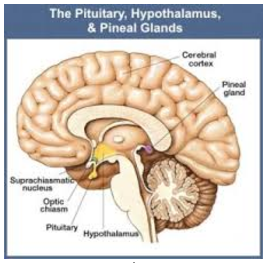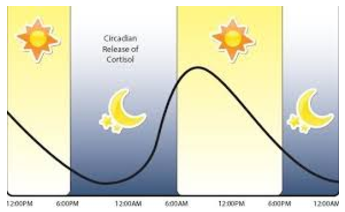By Sarah Wilkinson, LLB, BSc (Psychology), Diet and Nutritional Dip.
We all know how amazing it feels to wake up from a sound nights sleep. Refreshed, alert, energised. Sleep is essential. It is as important as food and water for optimal functioning. A restful sleep allows the body to repair injuries, build cellular tissue, and dispose of wastes.
Sleep facts
- Sleep is a state of consciousness where basic processes continue, where reaction and perception is decreased, and higher brain function is repressed.
- Environmental monitoring continues while asleep, but to a decreased extent.
- The brain consumes similar amounts of oxygen and glucose while you are asleep, as when you are awake.
- On average you spend ⅓ of your life asleep.
- Adults spend 7 – 9 hours per night asleep.
- Being asleep or awake depends on nerve signalling molecules, neurotransmitters.
- Sleep patterns are governed by circadian rhythms which control cyclic patterns of hormonal secretion.
The sleep cycle
We cycle through 5 stages of sleep on average 5 times a night. The alternating sleep and wake cycle reflects natural circadian rhythms. The timing of the 24 hour sleep cycle is regulated by the hypothalamus.
The five stages of the sleep cycle
- Stage 1 – a light sleep, where you drift in and out, are easily woken, muscle activity slows, sudden muscle contractions may occur, and you may experience sensations of falling.
- Stage 2 – eye movement’s stop, and brain waves are slowing.
- Stage 3 – extremely slow brain waves, you become increasingly hard to wake, a deep sleep where muscles are relaxed.
- Stage 4 – the deepest sleep, if woken you may feel groggy, sleep walking and bedwetting may occur, stage of physical restoration.
- REM – rapid eye movement sleep, where breathing is irregular, eyes jerk, limbs become paralysed, heart rate increases, blood pressure rises, experience of vivid dreams, you are unable to regulate body temperature, and the brain is active.
As you progress through sleep cycles REM periods increase, and the length of time spent in deep sleep decreases. REM sleep is important for thinking, learning, consolidation of memories, and organising information. Infants spend around 50% of time in REM sleep maybe for this reason, where as adults spend 20-25% of time in REM sleep.
Sleep and body balance
Sleep restores homeostasis, the balance of the nervous system. Restriction of sleep for an extended period of time is a health concern, and linked to impaired immunity, obesity and insulin resistance. As sleep is influenced by neurotransmitters, food, medication, physiological states, and pretty much anything we put into, or do with our bodies.
Factors affecting sleep include:
- Stress affects your hormones, particularly cortisol and growth hormone both of which are implicated with your circadian rhythm. Both hormones fluctuate over a 24 hour cycle, however a disturbance in sleep patterns can alter hormonal secretion, and therefore the body’s ability to self regulate, to repair.
- Alcohol affects REM and deeper stages of sleep. Metabolising alcohol is an active and energy dependent process performed by your liver. Therefore, while the liver works to metabolise alcohol physiological changes occur which mean you are less likely to stay in a restorative sleep.
- Caffeine a commonly consumed stimulant can affect hormonal secretion. Excessive caffeine affects your adrenal glands elevating cortisol levels, creating a vicious cycle of sleep debt.
- During abnormally hot or cold temperatures REM sleep is affected. As the body is not able to regulate temperature during REM sleep, make sure your sleep hygiene is considerate of temperature, as otherwise in order to maintain homeostasis you may wake, disrupting your sleep cycle.
- Adequate sleep is important in maintaining a healthy body weight. Insufficient sleep, may contribute to hormonal imbalances and changes in appetite control linked to weight gain.
- Food can have a negative and or positive impact. Studies highlight the importance of omega-3 fatty acids, magnesium, and potassium, the B vitamins in adrenal support, and tryptophan an amino acid implicated in the production of serotonin, and melatonin which affect the sleep cycle.
Sleep disturbances can alter cyclic hormonal release, which is related to the development of disease, so spend some time making sleep a priority, and developing healthy sleep habits for your better wellbeing.
References
Bush, B., & Hudson, T. (2010). Natural Medicine Journal. The Role of Cortisol in Sleep. Retrieved 2 February 2015, from http://naturalmedicinejournal.com/journal/2010-06/role-cortisol-sleep
Craft, J., Gordon, C. Tiziani, A., Huether, S. E., McCance, k. L., Brashers, V. L., & Rote, N. S. (2011). Understanding pathophysiology. Australia: Elsevier.
Marieb, E. N., & Hoehn, K. (2012). Human anatomy and physiology (9th ed.). Menlo Park, CA: Benjamin Cummings.
National Sleep Foundation. (2014). Sleep health. Retrieved 16 January 2015, from http://sleepfoundation.org/sleep-health.
National Institute of Neurological Disorders and Stroke. (2014). Brain basics: Understanding sleep. Retrieved 16 January 2015, from http://www.ninds.nih.gov/disorders/brain_basics/understanding_sleep.htm
National Institute of Health (2015). Teachers guides: information about sleep. Retrieved 25 January 2015, from https://science.education.nih.gov/supplements/nih3/sleep/guide/info-sleep.htm
Neurobiology of Brain Disorders (2015). Biological Basis of Neurological and Psychiatric Disorders. Retrieved 19 January 2015, from http://ezproxy-mc.mywisenet.com.au:2051/science/article/pii/B9780123982704000367
The Body’s Communication Systems: The Endocrine and Nervous Systems. Retrieved 1 February 2015, from http://www.uic.edu/classes/bios/bios100/lectures/nervous.htm
Whitney, E., & Rolfes, s. R. (2005). Understanding nutrition (10th ed). Belmont, CA: Thomson Wadsworth.




